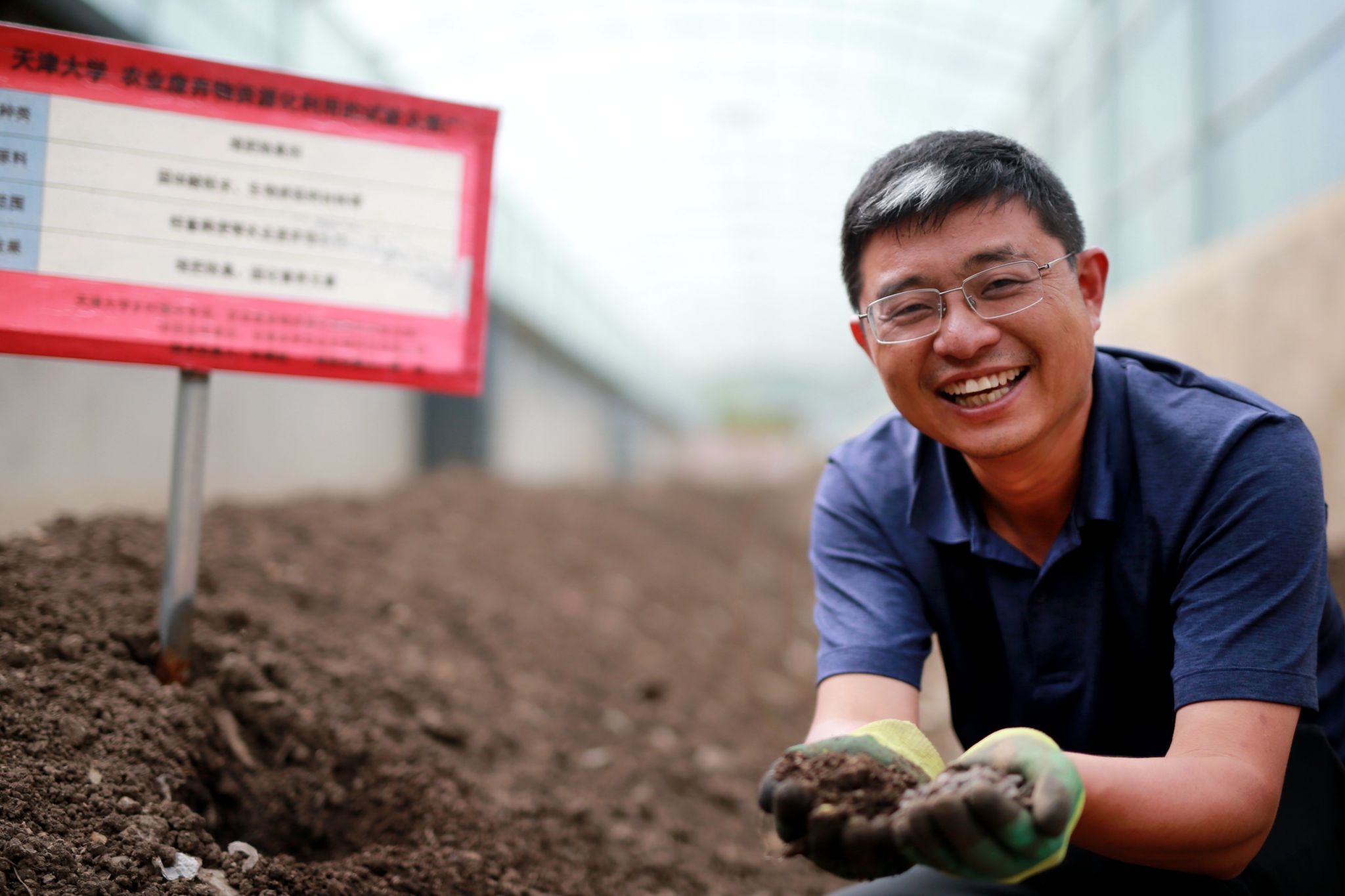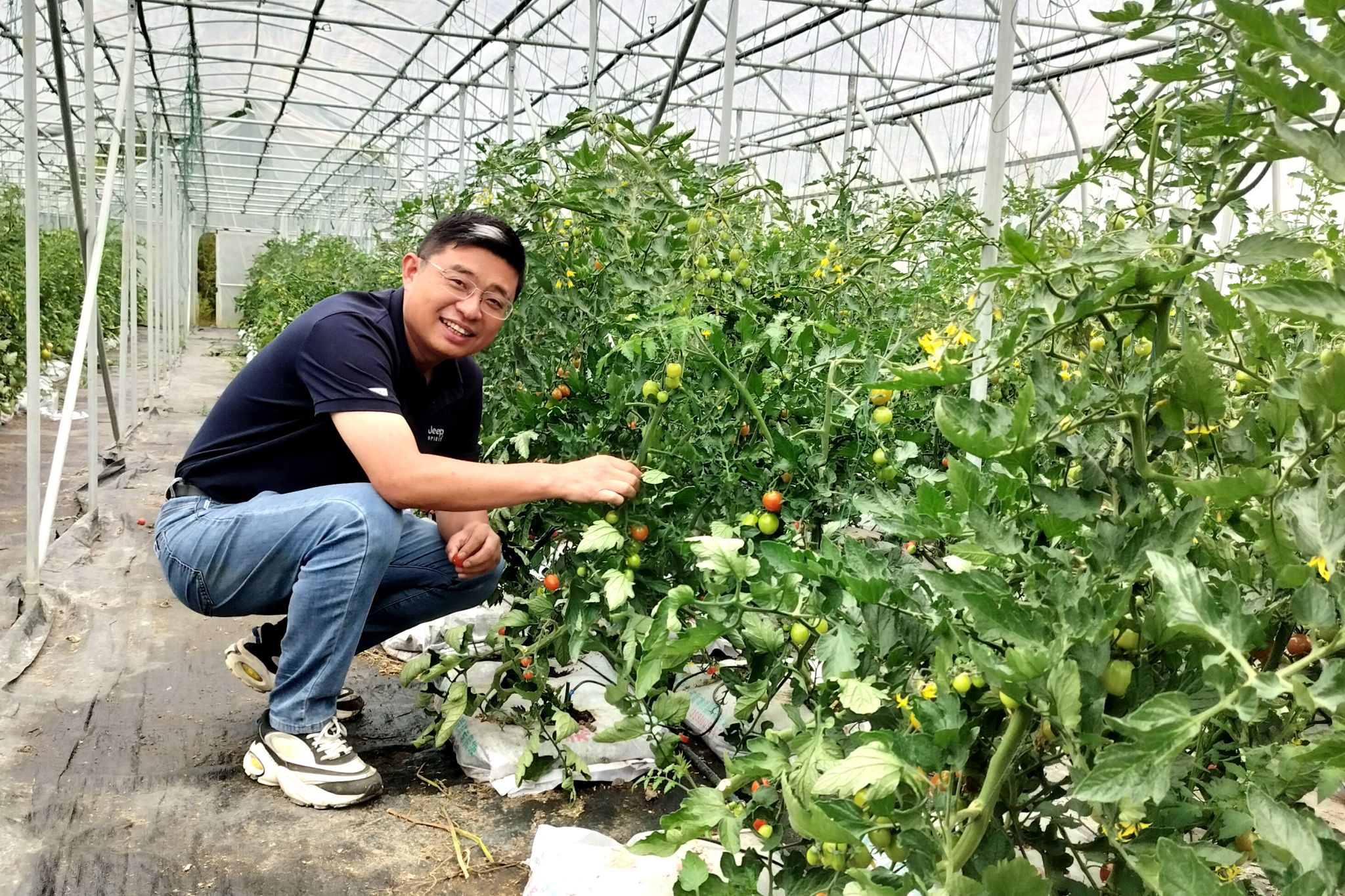For the past two years, Professor Huang Jun from Tianjin University’s School of Environmental Science and Engineering has been working at the forefront of rural revitalization efforts in Tanchang County, Gansu Province, as the Deputy Director of Tanchang’s Rural Revitalization Bureau. Combining innovative technology, environmental expertise, and social media outreach, Huang has introduced eco-friendly solutions that convert agricultural waste into valuable resources, benefiting both the local environment and agricultural production. In addition, he took over 500 videos, which made him a familiar face on social media, promoting Tanchang’s natural beauty, local delicacies, and environmental initiatives to a wide audience.

Huang’s primary focus has been tackling the environmental impact of agricultural waste, which has increased due to the growth of Tanchang’s mushroom cultivation, poultry, and traditional medicinal herb industries. Currently, the county generates around 10,000 tons of mushroom residue and 250,000 tons of livestock manure annually. Without proper disposal, these byproducts could pollute local water sources, negatively affecting the broader Yangtze River basin and impeding rural development. Recognizing the urgency of the issue, Huang spearheaded the development of mushroom residue and chicken manure co-fermentation technology, transforming these agricultural wastes into organic fertilizers and substrates.
Since the implementation of this technology, Huang’s project has yielded considerable results. His efforts have led to the production of 3,000 tons of organic fertilizer, 600 tons of seedling substrate, and 800 tons of cultivation substrate, along with 30,000 tons of semi-finished organic fertilizer. The project has also established 12 experimental greenhouses with water-fertilizer integration, providing a sustainable solution that benefits over 200 vegetable greenhouses. These initiatives significantly reduce the ecological impact of agricultural byproducts, while also improving soil health and increasing crop yields, fostering a circular agricultural model that enhances local food security.

Beyond his work in the field, Huang has embraced social media to promote Tanchang’s resources and potential. Through his Douyin account, he has brought widespread attention to the county’s cultural and ecological highlights, including the Guangegou scenic area, a national 5A-level tourist site often referred to as “Little Jiuzhaigou” for its picturesque landscapes. In addition to showcasing Tanchang’s scenic beauty, Huang’s videos introduce local delicacies and traditional dishes. His informal style and genuine enthusiasm resonate with audiences. His content has boosted local tourism and helped establish a brand for Tanchang’s agricultural products, enhancing the county’s visibility on a national level.
Moreover, Huang has used social media as a platform for science communication. His videos not only attract attention but also educate viewers on sustainable practices that are both environmentally friendly and economically beneficial. He explains how organic fertilizers produced from agricultural waste improve soil structure, increase crop resilience, and reduce the environmental harm associated with traditional fertilizers. By showcasing successful trials and real-world applications, Huang demonstrates the practicality of these technologies, encouraging their adoption in other rural regions facing similar challenges.

Huang’s commitment to Tanchang’s development has been widely recognized. In 2023, his work on agricultural waste conversion won first place in a Ministry of Education competition. In 2024, the Tanchang County government appointed him as "Beauty of Tanchang Navigator" and “Promotional Ambassador” for his efforts to promote Tanchang’s natural and cultural assets.
As his two-year term as Deputy Director of Tanchang’s Rural Revitalization Bureau nears its end, Huang has chosen to extend his service by another year. Reflecting on his decision, he shared, “There’s so much more to accomplish here. This work brings both purpose and fulfillment, and it’s deeply rewarding to see the impact of these initiatives on the community.” His ongoing commitment underscores the importance of long-term support for rural revitalization, as well as the critical role that technological innovation and social engagement play in achieving sustainable development goals.
Huang’s work exemplifies the integration of academic expertise, practical technology, and community outreach in advancing environmental sustainability and rural economic growth. His efforts reflect a powerful model for combining scientific research with grassroots efforts to support China’s rural revitalization campaign, helping local residents to implement “lucid waters and lush mountains are invaluable assets”.
By: Qin Mian






